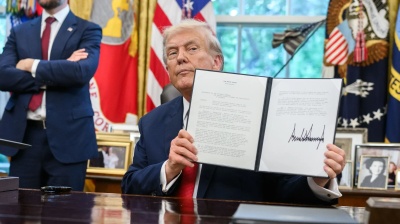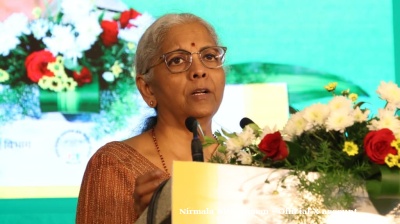President Janos Ader has set April 3 for the day of Hungary's next general elections, according to the official statement released on January 11. The date is the earliest one allowed by law.
“This year, for the ninth time, Hungary's citizens with the right to vote will be free to decide who they entrust with the management of our common affairs," the president said in a statement published on Tuesday afternoon. The election campaign will start 50 days before the election, or February 12.
Analysts expect a bitter and nasty campaign and a close election race with a lot at stake. Polls show the six-party opposition alliance only slightly behind the ruling Fidesz party. Hungary’s diverse opposition have united in an effort to oust Viktor Orban from office by backing a single candidate after three lost elections.
The six-party opposition alliance will run on a single list at all 106 districts and have fielded a conservative outsider Peter Marki-Zay, selected during a historic primary race, to face off strongman Viktor Orban, who has turned Hungary into an illiberal state and a model for far-right leaders across the globe.
The Hungarian election will be closely watched globally and could have geopolitical implications given Orban’s close ties to Beijing and Moscow and due to the bitter row with the EU.
Opposition leaders want to make the vote a referendum on Viktor Orban's corrupt regime, accusing the 58-year-old former anti-Communist youth leader of dismantling checks and balances, staffing state institutions with loyalists and turning Hungary the black sheep in the EU.
Even though the diverse opposition – including liberals, greens, center-rightist and leftists, – has joined forces, they still face an uphill battle to dethrone Fidesz, which has ruled with a two-thirds majority since 2010 with unlimited resources and the entire state apparatus, including a vast media power behind it.
After the 2018 vote, international organisations such as OSCE said the election was free, but the playing field was biased in favour of the ruling party due to "a pervasive overlap between state and ruling party resources, biased media coverage and opaque campaign financing regulations".
The playing field in the 2022 elections won’t be level this time, either. The single-round election system, the gerrymandering of districts, the appearance of bogus parties, legislation allowing vote tourism and media dominance helped the ruling party to secure a two-thirds majority in 2014 and 2018 and there are no signs of these trends changing in 2022.
The 2012 election reform phased out the two-round system and reduced the number of seats from 386 to 199 and eliminated the regional lists. On the first ballot, voters can elect MPs for 106 single-member districts using first-past-the-post. The remaining 93 mandates are distributed according to votes on the party lists, which also includes “wasted votes” from the first ballot on losing candidates, using a complicated technique.
Fidesz can also count on the vast majority of the 1.1mn ethnic Hungarians, who have received Hungarian citizenship over the last 10 years. Some 90% of those who voted in 2018 picked the ruling Fidesz party.
Viktor Orban’s party has also resorted to voter suppression. A month ago, the National Election Committee (NVB) has dismissed a request to increase the number of places available for Hungarians living in the UK to cast their votes. An estimated 150,000-200,000 people can only vote in London and Manchester. Petitioners have called for establishing additional polling stations in a dozen cities.
On Tuesday, President Janos Ader also decided to set the date for a referendum to gauge support for safeguarding minors' exposure to sexual orientation in the classroom and in the media on the same day as the general elections.
News

Trump authorises CIA covert operations in Venezuela to topple Maduro
The White House has acknowledged granting the Central Intelligence Agency sweeping powers to conduct covert operations aimed at unseating President Nicolás Maduro, the NYT reported.

India’s finance minister to miss upcoming IMF and World Bank meetings
India’s Finance Minister Nirmala Sitharaman will not attend this week’s annual meetings of the International Monetary Fund and World Bank in Washington, as trade negotiations between New Delhi and Washington remain unresolved.

Young Ukrainians asylum seekers fleeing the war for Germany surges
The number of young Ukrainian fleeing the war and seeking asylum in Germany has surged, following Ukraine’s decision to partially lift its travel ban for men aged 18 to 22, according to figures from the German Interior Ministry.

US may double support for Argentina to $40bn conditional on policy reforms
Washington buys Argentine pesos and mulls creating a new private sector-led $20bn debt facility, which would bring total support to $40bn with the existing swap line, Treasury Secretary Bessent said.




